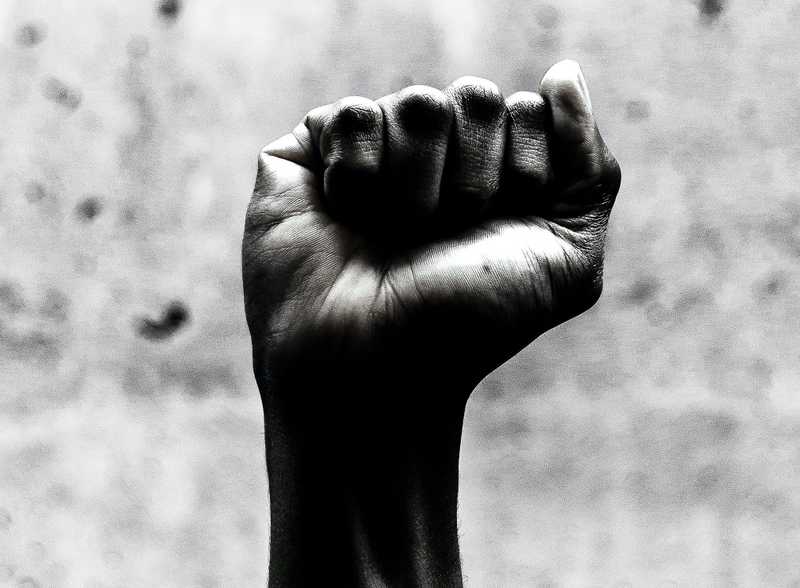Canada’s march to legalize cannabis has touched off strong debate. But some of the most important voices have gone unheard: those of African-Canadian and First Nations communities across the country.
“Stigmatization is a major factor,” says Anthony Morgan, a lawyer at Falconers LLP in Toronto. Morgan, who previously practiced at the African Canadian Legal Clinic, has appeared before two United Nations human rights committees and was the national president of the Black Law Students’ Association of Canada.
“There’s a history of African-Canadians of being unjustly targeted for the use and distribution of cannabis. This stereotype of the community as the primary users or distributor of cannabis puts us in a very negative light. This has prevented a lot of people from contributing to the debate,” Morgan says.
A History of Drugs & Racism in Canada
While the examination of race and prosecution is timely, it’s also part of the Canadian history that sets the stage for today.
A 2017 Maclean’s Magazine article, “A Bad Trip: Legalizing Pot Is About Race,” points out that racism probably underlined the federal government’s decision to pass the 1908 Opium Act, banning opium for other than medical purposes.
RELATED: A BRIEF HISTORY OF MARIJUANA PROHIBITION & LEGALIZATION IN CANADA
As Evan Solomon writes in the article: “It was impossible to separate the government’s thinly developed health concerns about opium from its much more deeply developed racist views on Chinese immigrants. Banning opium then was a part of the larger, shameful goal of preventing Chinese immigration.”
The article points out that African-Canadians and indigenous people are incarcerated in numbers far greater than their percentages of the national population. The statistics, however, weren’t broken down into drug arrests generally and cannabis prosecutions specifically.
New Evidence on Racial Profiling & Cannabis Emerges
That said, evidence is emerging that shows minority communities are systemically being targeted for cannabis and other drug-related offences.
A July 7, 2017 article in the Toronto Star reveals a “startling race divide” when it comes to the police arresting African-Canadians with no history of criminal convictions for possession of small amounts of marijuana, compared to white people with similar backgrounds.
Ten years’ worth of Toronto Police Service marijuana arrest and charge data reveal that the disparity in arrests is largely due to Toronto police targeting African-Canadians. The stats also show that more white people were released at the scene when caught with small amounts of cannabis, while a greater number of African-Canadians were detained for bail hearings.
These statistics are backed up by an April 18, 2018 Vice News story asserting that “black and indigenous men and women have been overrepresented in cannabis possession arrests across Canada in the years since Justin Trudeau became prime minister.”
Among other things, its data reveal: “Indigenous people in Regina were nearly nine times more likely to get arrested for cannabis possession than white people during that time period. Meanwhile, black people in Halifax were more than five times more likely to get arrested for possessing weed than white people.”
Marijuana Legalization Doesn’t Solve Cannabis Prosecutions
Legalization of cannabis in Canada won’t solve the problems of prosecution. Anthony Morgan writes an online article: “It is important to note that Canada’s Cannabis Act will actually increase the number and severity of penalties for the consumption and distribution of cannabis.”
But beyond the stigma of prosecutions, the way that African-Canadians have been so forcefully targeted for cannabis consumption and distribution means that they don’t feel they can speak out on the issue.
“Many of the people most affected by these [prosecutions] are experiencing all kinds of socioeconomic disadvantages,” explains Morgan. “The prosecutions have created an underclass of African-Canadians who are struggling to find ways to live life with the implication of those prosecutions. Dealing with these very real challenges, they cannot make themselves available for this debate.”
He adds: “There are black women who literally lost their children as a result of being suspected as heavy cannabis users. So serious attention needs to be paid to how you fix that problem and how you redress those families who have been broken up and destroyed because of how cannabis has been criminalized.”
Addressing Minority Community Needs Directly
Going forward, the government needs to address minority issues directly, and not just rely on what Morgan calls the “one-size-fits-all approach” it has used so far.
“I’ve talked to African-Canadian community leaders in Toronto, Montreal and Halifax,” he says. “Their messaging is consistent. The government hasn’t reached out to them, so it doesn’t look like much is going to change for those who have received some of the worst harm from the criminalization of cannabis.”
A sign that community concerns are being heard would be if automatic pardons are granted for anyone convicted of possession of small amounts of marijuana for personal consumption. Other important steps would be to provide people unfairly targeted by drug prosecutions with support to get training and financial assistance so they can get their lives and careers back on track.
But if the government continues to take action that is “systematically racist,” then it risks legal repercussions. Says Morgan, “I’m confident there are other lawyers out there who are prepared to make a challenge on the basis of under-inclusion of remedial legislation on this, to get it declared a violation of the Canadian Charter of Rights and Freedoms.”
Photo credit: Oladimeji Odunsi
